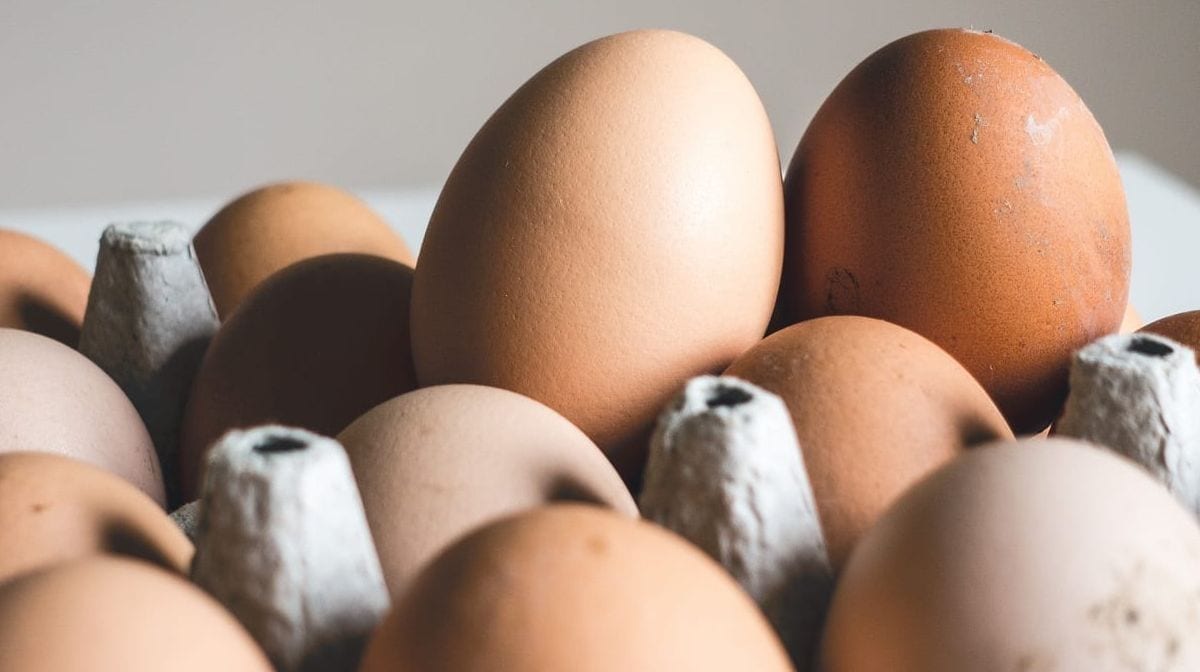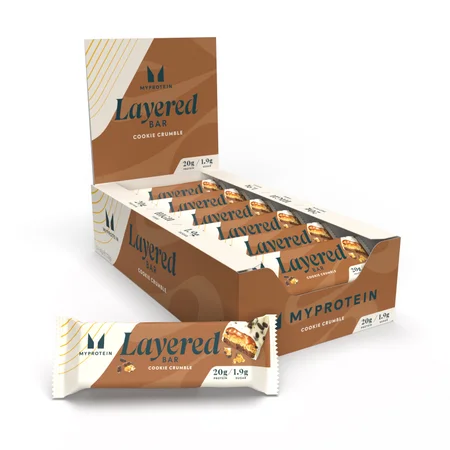What Is The Egg Diet?

Many people begin their day with an egg. Whether it’s scrambled, fried, or poached, an egg combined with a buttery slice of toast is the perfect balance of protein and carbs to keep you going until lunch.
It’s possible we’ve reached peak egg, though, as some people have been following an extreme diet where you eat an egg at every meal. Have they cracked the secret to diet success? Or is this just another symptom of a broken society? Read on to find out everything you need to know about the egg diet.

What is the egg diet?
The egg diet is a restrictive, low-carb, short-term diet. How many eggs it includes can differ depending on how strict you want to be. There are three types of egg diet, but the diet generally involves each meal containing an egg or other source of lean protein alongside non-starchy vegetables. Sounds OK so far — after all, a lean source of protein plus some veggies is never a bad idea.
How long does it last?
On the 14-day diet, you can eat eggs, lean protein sources like poultry and fish, and lean cuts of beef, lamb and pork. You can also eat low-carb fruits (1-2 portions a day) and non-starchy veg along with fat sources such as coconut oil, butter and mayonnaise — but only in small portions.
The three-day diet is far more restrictive. On this diet plan you must eat a whole egg within 30 minutes of waking up, eat an egg-based meal every three or four hours, consume 15g of butter or healthy fat with each egg, and stop eating three hours before bed. While more butter is allowed on this version, one of its primary aims is to create a state of ketosis, which is when your body doesn’t have enough carbohydrates to burn for energy. This requires less than 50g of carbohydrate a day, so fruits should be limited.
What can you eat on the egg diet?
On the 14-day diet you can eat eggs, lean protein sources like poultry, fish and lean cuts of beef, lamb and pork. You can also eat low carb fruits (1-2 portions a day) and non-starchy veg along with fat sources such as coconut oil, butter and mayonnaise – but only in small portions.
On the 3-day diet plan you must eat a whole egg within 30 minutes of waking up, eat an egg-based meal every 3-4 hours, consume 15g of butter or healthy fat with each egg and stop eating 3 hours prior to bed. While more butter is allowed, one of the primary aims is to create a state of ketosis – this requires less than 50g of carbohydrate a day, so fruits should be limited.
What you cannot eat on the egg diet
Sources of carbs are limited on the egg diet. The following foods should be avoided.
Fruits
Fruits that are the highest in sugars and starches are not part of the egg diet.
- Mangoes
- Grapes
- Cherries
- Watermelon
- Pears
- Figs
- Bananas
Starches
- Potatoes
- Pasta
- Rice
- Bread
- Noodles
Processed Foods
- Fast food
- Snack foods
- Baked goods/pastries
- Dairy Foods
- Cow’s milk
- Yoghurt
- Ice cream
Types of Egg Diet
14-Day Egg Diet
This option includes low-carb fruits and is followed for two weeks, making it slightly less restrictive than the three-day egg diet option. It may be easier to follow over a short period of time, but it is still very low in calories and hard to maintain.
3-Day Egg Diet
Designed for dramatic results in a short period of time, this diet is lower in calories and more restrictive. This diet’s aim is inducing a ketogenic state to burn fat. So it’s important to restrict carbs, though this can lead to low energy levels.
Egg and Grapefruit Diet
This diet is based on the grapefruit diet, which is another popular weight loss diet. in the difference is this version includes egg and other lean protein sources in addition to low-calorie citrus fruit. Combining two fad diets doesn’t necessarily make for a better diet, but this diet does have some combination of fat, carbs, and protein. If followed for a short period of time, it may be effective as a very low-calorie diet.
Egg-Only Diet
From its description alone, the egg-only diet is a clear red flag. Any type of diet that includes one type of food will lack essential minerals and vitamins (not to mention carbs). This type of very restrictive diet is simply not nutritionally adequate.
Keto Egg Diet
Described by some as a way to “kick start” a ketogenic diet, eggs are a great option for protein and fat without adding too many carbs. However, ketogenic diets are very restrictive and hard to maintain in the long term.
Can it help with weight loss?
Due to the diet’s restrictions and its low carbohydrate content, it will most likely create a calorie deficit, which is where you expend more calories than you consume. This is how every diet works for weight loss.
Both the three-day and 14-day diets can be used to jump start any stalled progress or be used as an introduction to a ketogenic diet, which could work better long term.
What are the benefits?
High in protein
Due to the diet consisting mostly of eggs, the protein intake will be high. Evidence shows keeping your protein intake high while dieting can help to maintain vitally important lean muscle mass.1
It will provide short term weight loss
Due to the energy restriction of the diet, it’s likely you’ll be in an energy deficit while following the diet. This may help give you a kick start in for your weight management goals and provide motivation for sticking to a healthier, more sustainable diet in the long term.
Eggs are highly nutritious
Eggs are not only a good protein source (typically containing 6g of protein per egg), they are also a great source of micronutrients such as magnesium, selenium, folate, vitamin D and vitamin A.
Are there any side effects?
Nutrient deficiencies
Due to the restrictions, it’s possible you end up with nutrient deficiencies. For example, grains and starchy carbohydrates such as potatoes are an important source of fibre and micronutrients. The diet also restricts dairy, which is a great source of calcium.
Low energy availability
The restrictive nature of the diet also means it’s low in calories. A low-calorie diet will lead to low energy availability, which may cause fatigue, reduced bone density (more of a risk if calcium intake is low), decreased athletic ability and even hair loss. On a long-term basis, it may also lead to hormone disruption.2
Egg diet FAQs:
How much weight can you lose on an egg diet?
According to Arielle Chandler, author of The Boiled Egg Diet, following the diet may help you lose 11kg in two weeks. It is debatable that this is healthy. Furthermore, the weight lost mostly won’t all be fat. Due to the lack of carbohydrates on the diet, a lot of it will be water weight.
Can you do an egg diet for more than two weeks?
It’s not advisable to follow a restrictive diet for more than two weeks. Your body needs a wide range of nutrients to function properly, and restricting food groups will result in nutrient deficiencies.
Additionally, low calorie diets will result in low energy availability, which may lead to fatigue, disordered eating, hair loss, reduced bone density and low mood. On a long-term basis eating such few calories may result in hormone disruption, possibly causing amenorrhea in females and low testosterone in males, as well as an increased level of the stress hormone cortisol.2
Long-term energy restriction will also lead to a loss of lean muscle mass and a lower basal metabolic rate, which will make it harder to lose weight in the long term.
Sample egg diet menu:
Day 1
Breakfast: Scrambled egg with spinach and tomatoesSnack: Handful of raspberriesLunch: Egg saladSnack: Handful strawberriesDinner: Chicken stir fry
Day 2
Breakfast: OmeletteSnack: Handful of blueberriesLunch: Turkey and avocado saladSnack: Handful of blackberriesDinner: Pork chop with broccoli and cauliflower
Day 3
Breakfast: 2 eggs, 2 slices of ham, and asparagusSnack: KiwiLunch: Salmon saladSnack: WatermelonDinner: Grilled salmon with green beans and asparagus
Day 4
Breakfast: Scrambled egg and tomatoesSnack: PeachesLunch: Lean steak saladSnack: CantaloupeDinner: Pork stir fry
Day 5
Breakfast: OmeletteSnack: Handful of raspberriesLunch: Chicken and veg soupSnack: Handful of strawberriesDinner: Cod with green beans and broccoli
Day 6
Breakfast: 2 eggs, 2 slices of ham, spinach and tomatoesSnack: Handful of blueberriesLunch: Tuna and avocado saladSnack: Handful of blackberriesDinner: Steak, mushrooms and onions
Day 7
Breakfast: Scrambled egg with spinachSnack: PeachLunch: Ham and hard-boiled egg saladSnack: Handful of strawberriesDinner: Lamb chop with cauliflower and asparagus
Take home message
The egg diet is high in protein and low in calories. It may help provide short-term weight loss, but it’s not advisable to follow on a long-term basis. It’s very restrictive and may lead to nutrient deficiencies as well as other long-term negative health outcomes.

Liam is a certified sport nutritionist with the International Society of Sport Nutrition and is enrolled on the British Dietetics Association’s Sport and Exercise Nutrition register. He has a Bachelor’s of Science in Sport and Exercise Science and is graduate of the ISSN Diploma in Applied Sport and Exercise Nutrition.
Liam is an experienced personal trainer, helping clients reach their health and fitness goals with practical, evidence informed exercise and nutrition advice. In his spare time Liam has competed in numerous powerlifting competitions and enjoys hill walking, football and expanding his recipe repertoire in the kitchen.Find out more about Liam's experience here.






